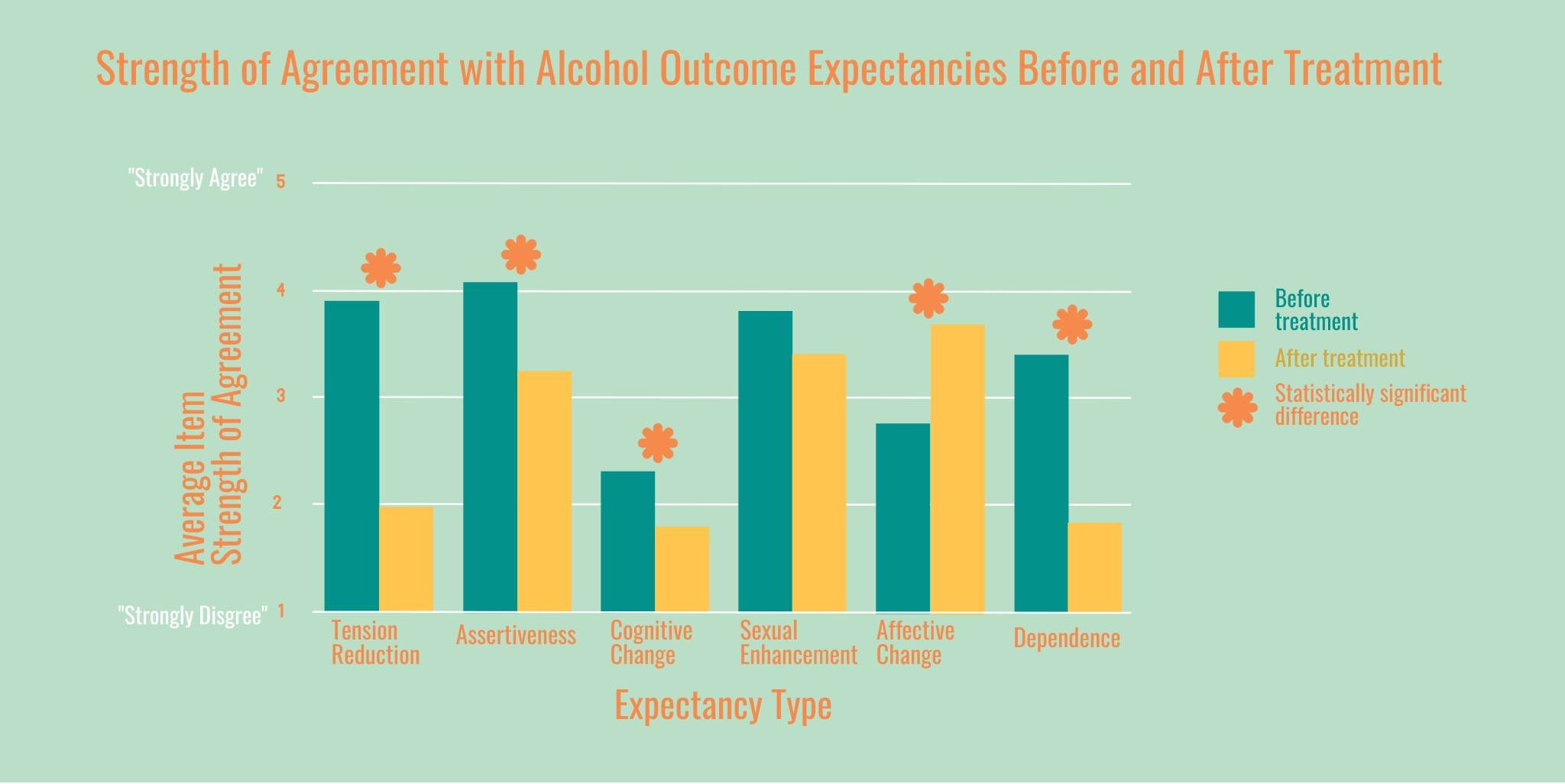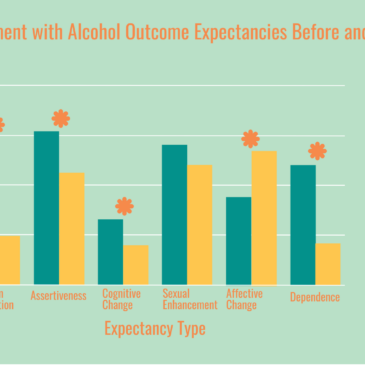People often have expectations about what will happen when they drink alcohol. They might expect that having a drink will make them more sociable (a positive expectation), or make them feel irritable and sad (a negative expectation). These beliefs are called alcohol outcome expectancies, and they play a part in how people develop and experience Alcohol Use Disorder (AUD). This week, The DRAM reviews a study by Jason Coates and colleagues that evaluated the role of expectancies in the context of Cognitive Behavioral Therapy (CBT) for AUD.
What was the research question?
Are changes in alcohol outcome expectancies associated with successfully abstaining from drinking during CBT?
What did the researchers do?
The researchers analyzed data from 175 patients who completed a twelve-week abstinence-focused CBT treatment program for AUD. The researchers asked participants how much they believed different alcohol outcome expectancies1 before and after completing treatment. These included mainly positive expectancies, such as beliefs that alcohol would make one more outgoing and friendly (Assertion), sexier or more romantic (Sexual Enhancement), more mentally alert (Cognitive Change), or more calm (Tension Reduction), and one category of negative expectancies pertaining to beliefs that alcohol would make one feel sullen and depressed (Affective Change). A final category of expectancies involved beliefs about a personal sense of alcohol addiction (Dependence). The researchers used t-tests and multi-level models to evaluate how participants’ expectancies changed during treatment and if they were related to participants’ alcohol abstinence (in terms of number of days they drank during treatment).
What did they find?
Over the course of treatment, participants reported significant reductions in their tension reduction, dependence, assertion, and cognitive change expectancies. Meanwhile, their affective change expectancies significantly increased, and their sexual enhancement expectancies did not change (see Figure). In other words, during treatment, they had fewer positive expectations about what alcohol would do for them. Tension reduction expectancies were most associated with increased alcohol abstinence. The more days in the study period that a participant did not drink alcohol, the more likely they were to score lower on the tension reduction scale at the beginning and end of treatment.

Figure. The y-axis indicates participants’ level of agreement with each expectancy subscale divided by the number of items on that subscale. Click the image to enlarge.
Why do these findings matter?
In theory, some treatments for AUD, including CBT, work in part by challenging alcohol-related expectancies. However, few studies actually examine how expectancies change in the context of AUD treatment. This study suggests that tension reduction expectancies in particular might be related to successful AUD recovery. Treatment providers might pay special attention to patients who strongly believe that alcohol will relieve their tension, as those patients might have a harder time maintaining abstinence from alcohol.
Every study has limitations. What are the limitations in this study?
The researchers only analyzed data from the 175 participants who completed the entire 12-week CBT program; however, there were 270 other individuals who began the treatment program but did not complete it. This means that we don’t know whether the same associations between expectancies and alcohol use apply to a larger group of people who sought but did not complete treatment for AUD.
For more information:
If you are interested in seeking treatment for alcohol-related or other mental health issues, check out SAMHSA’s Behavioral Health Treatment Services Locator.
— Rhiannon Chou Wiley
What do you think? Please use the comment link below to provide feedback on this article.
1 As measured by the Drinking Expectancy Questionnaire




